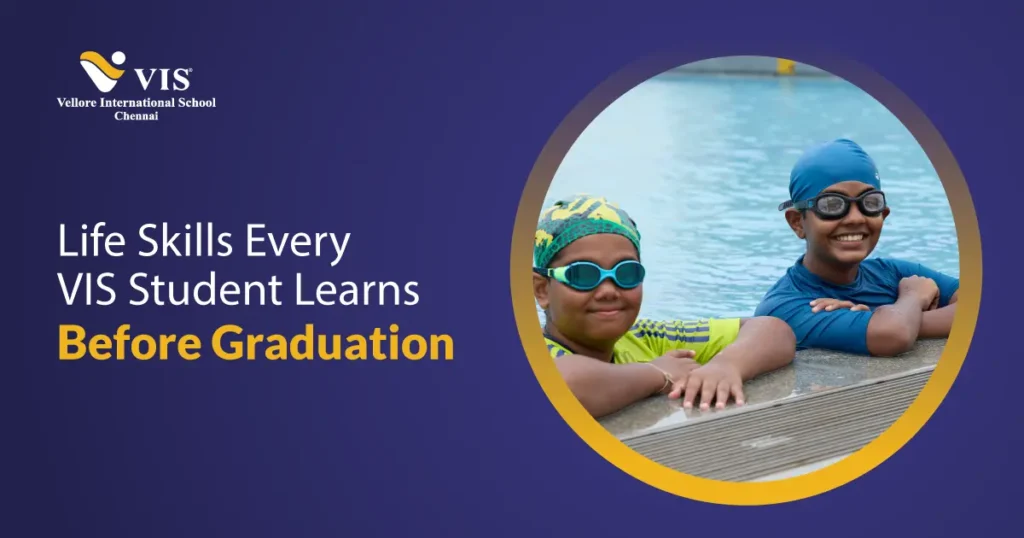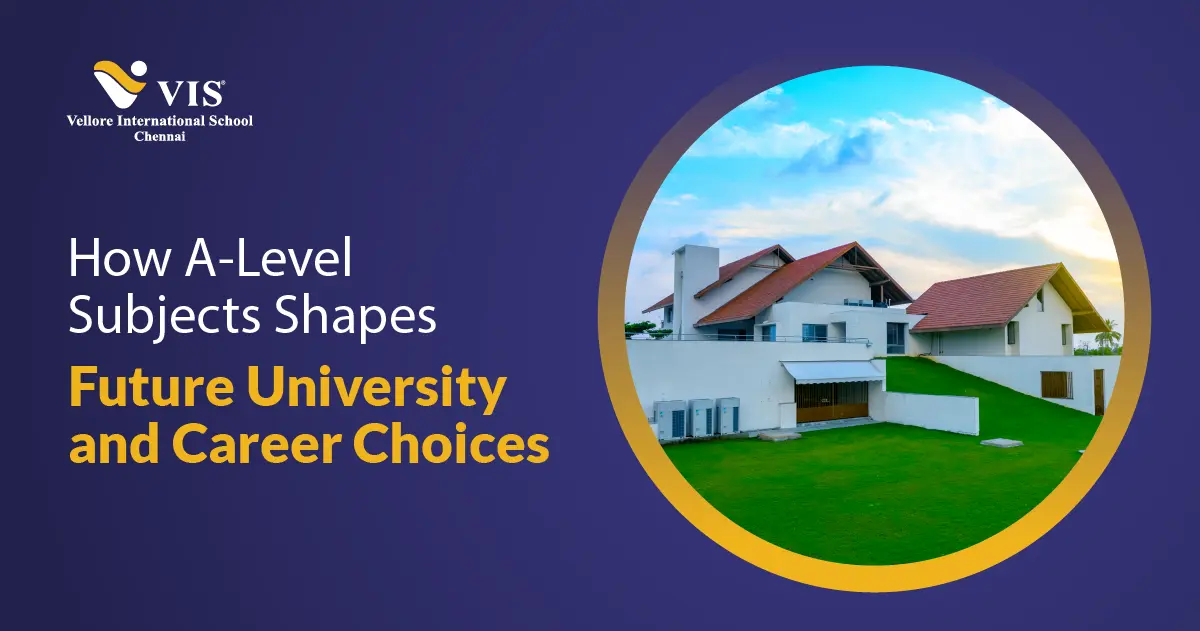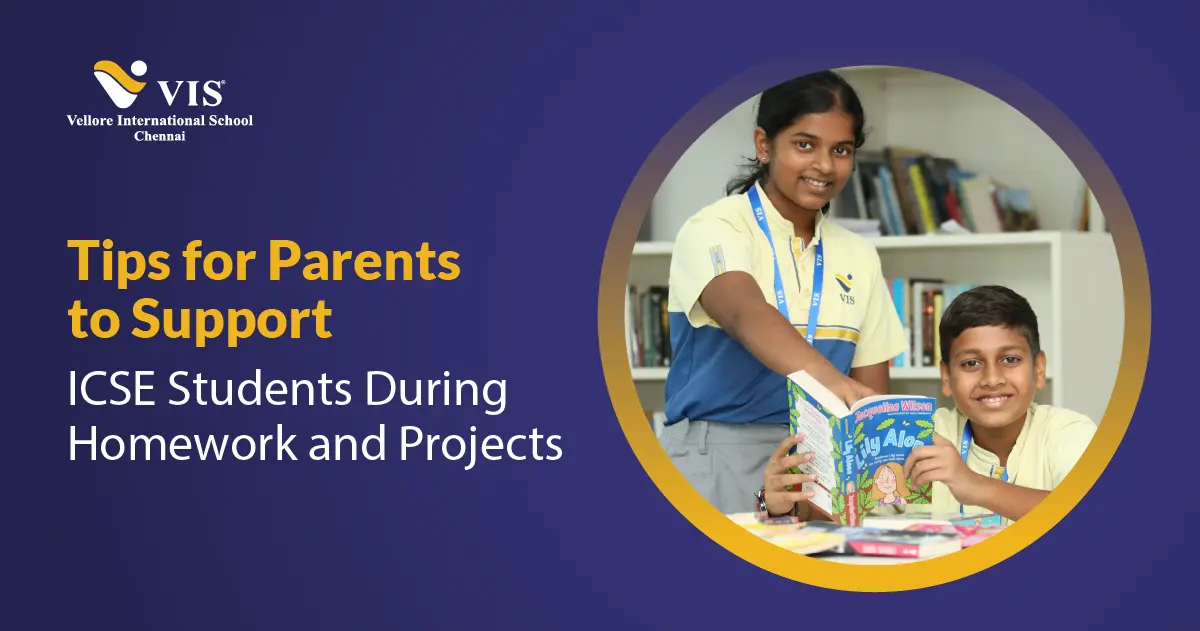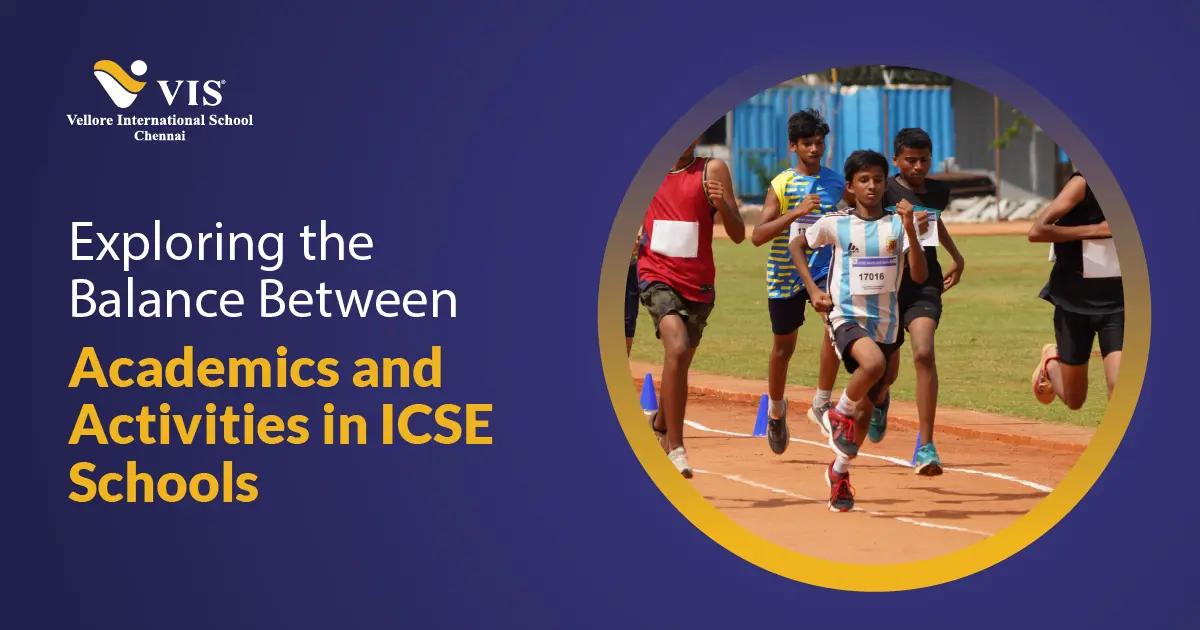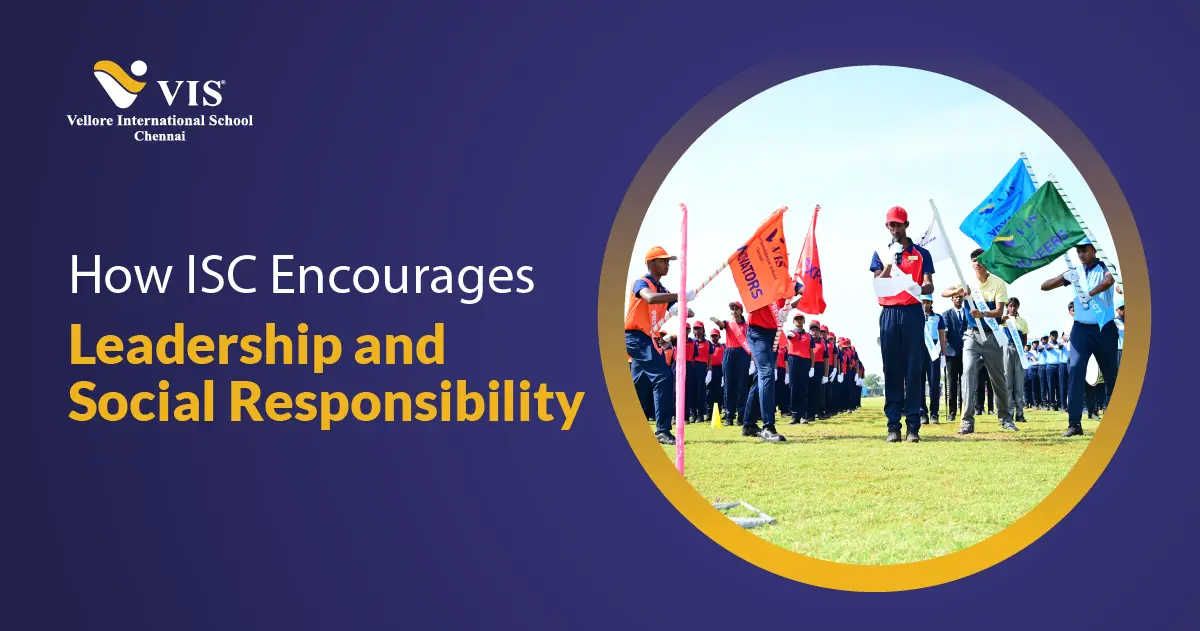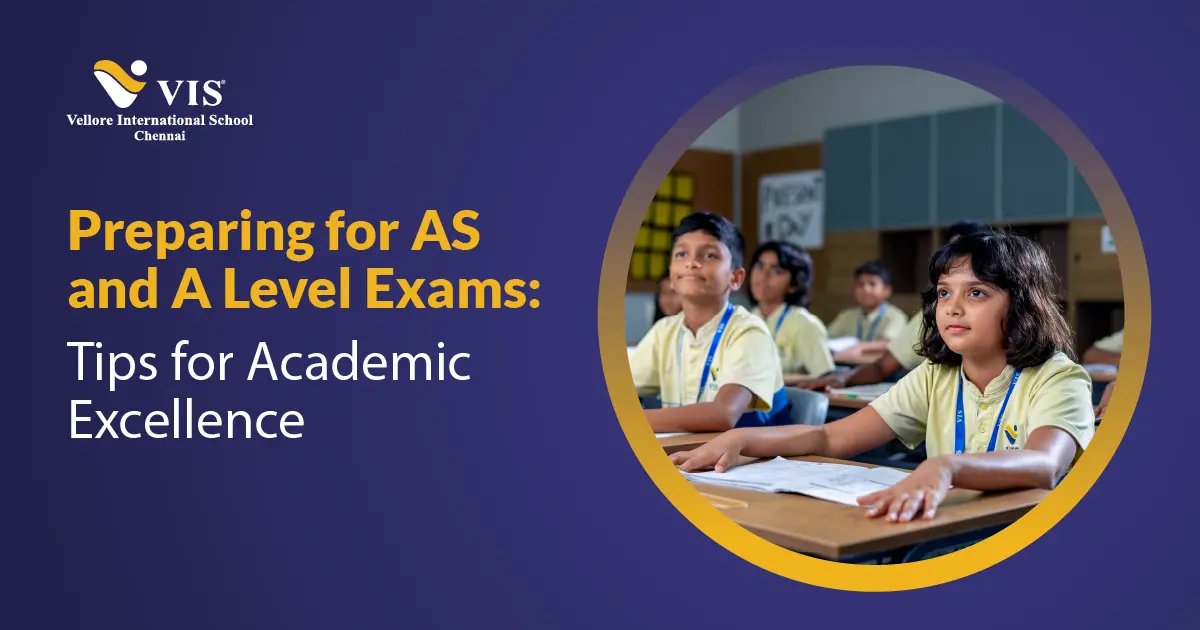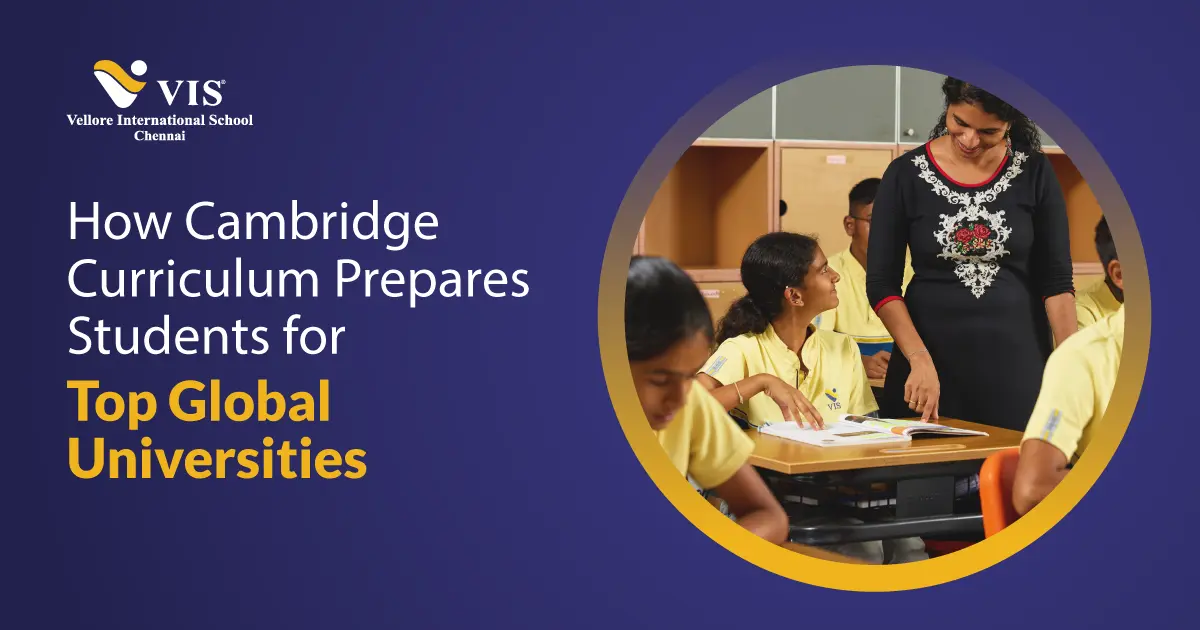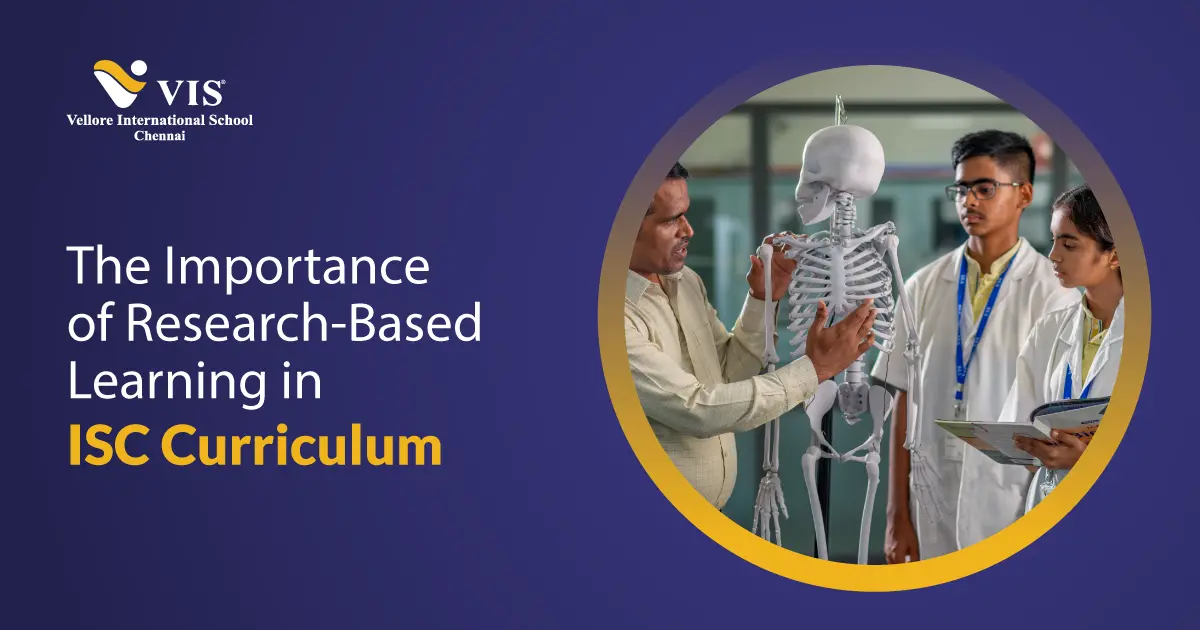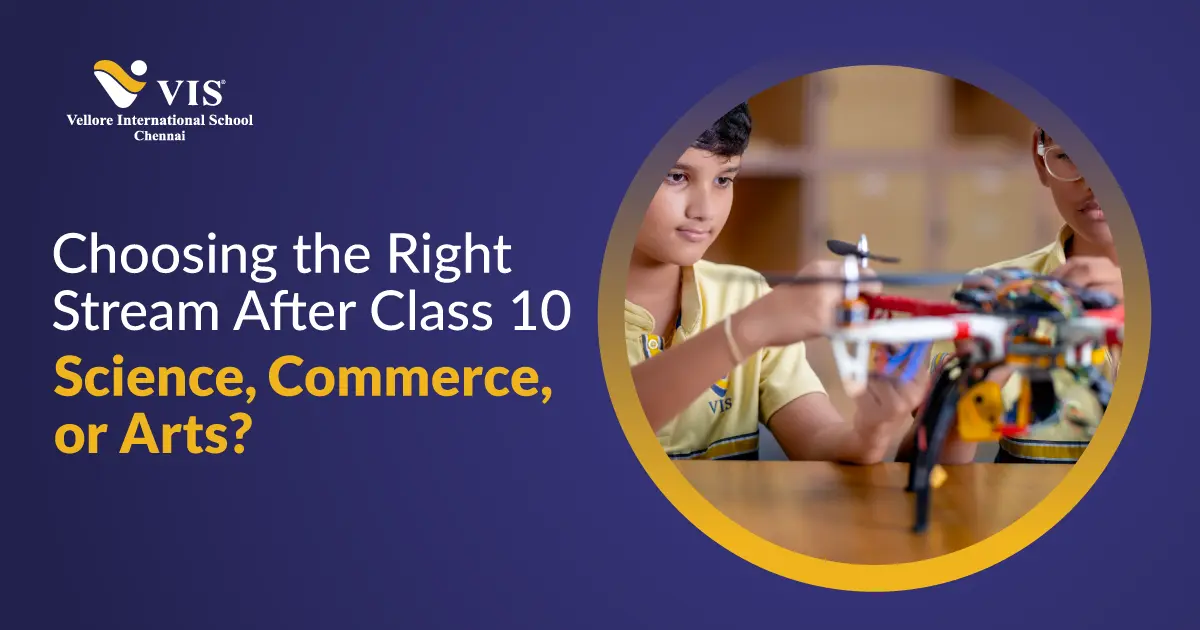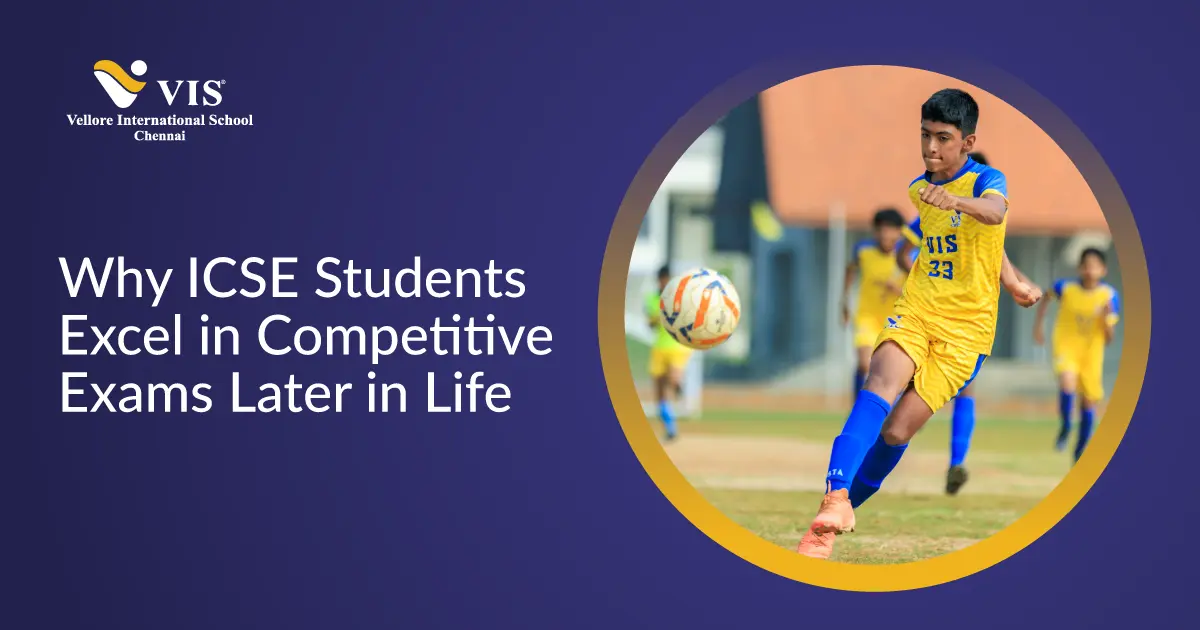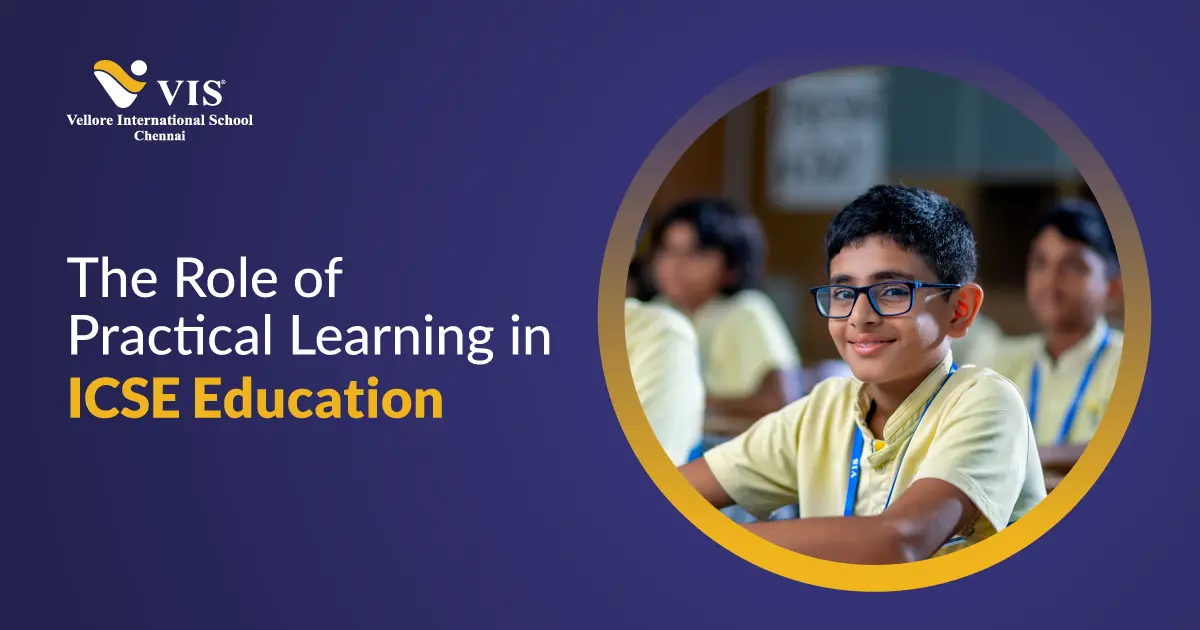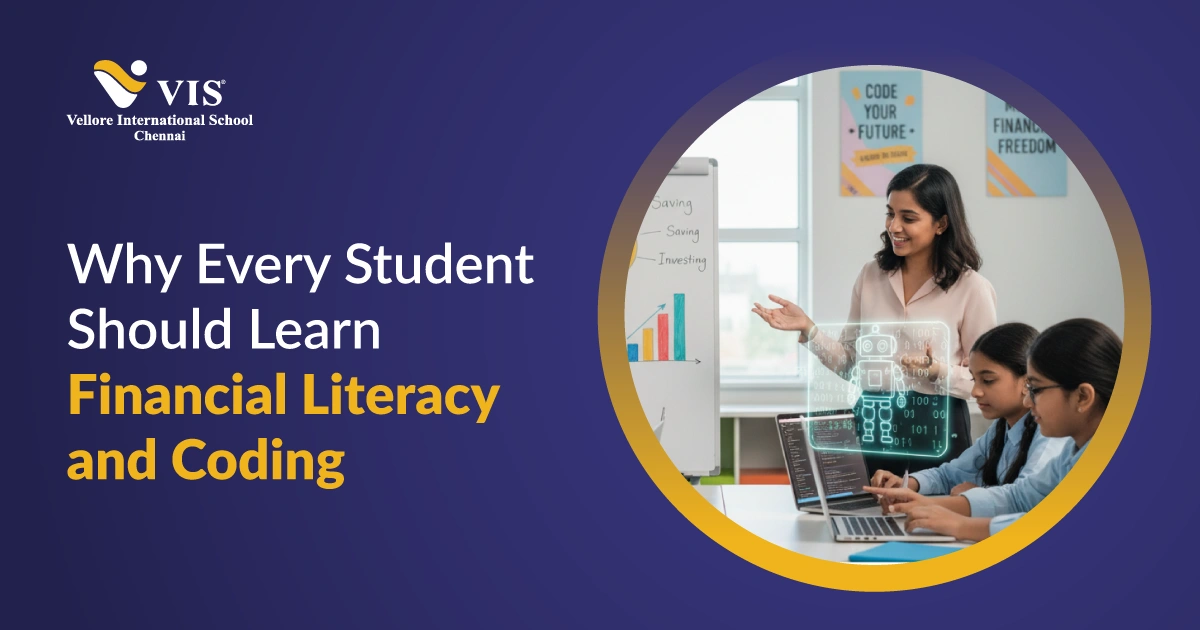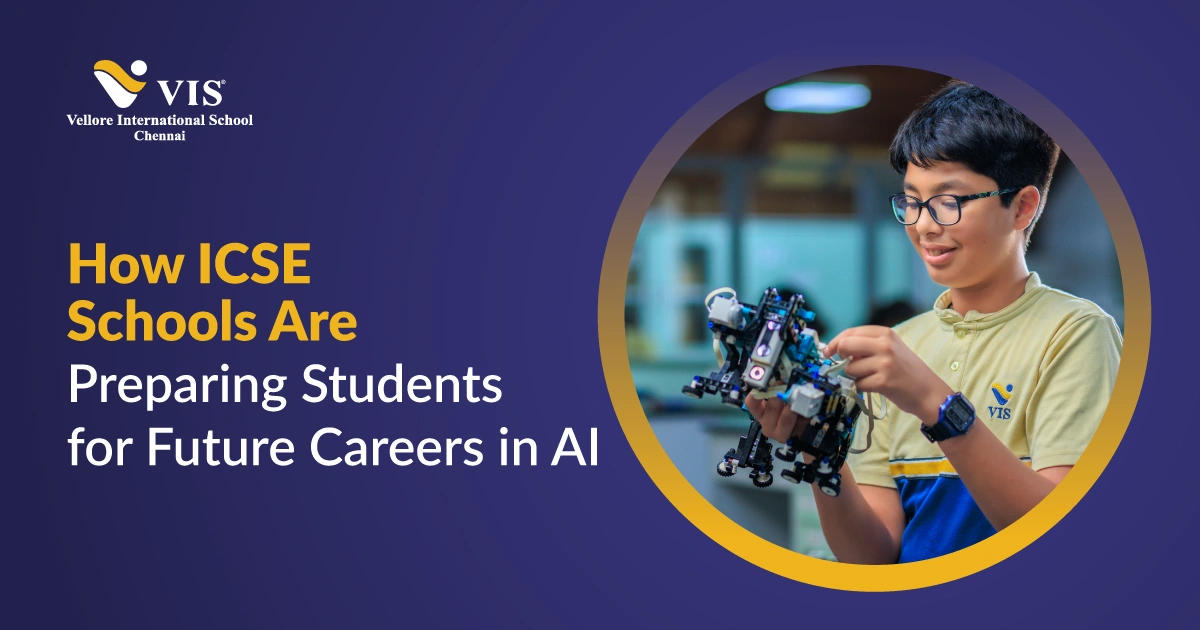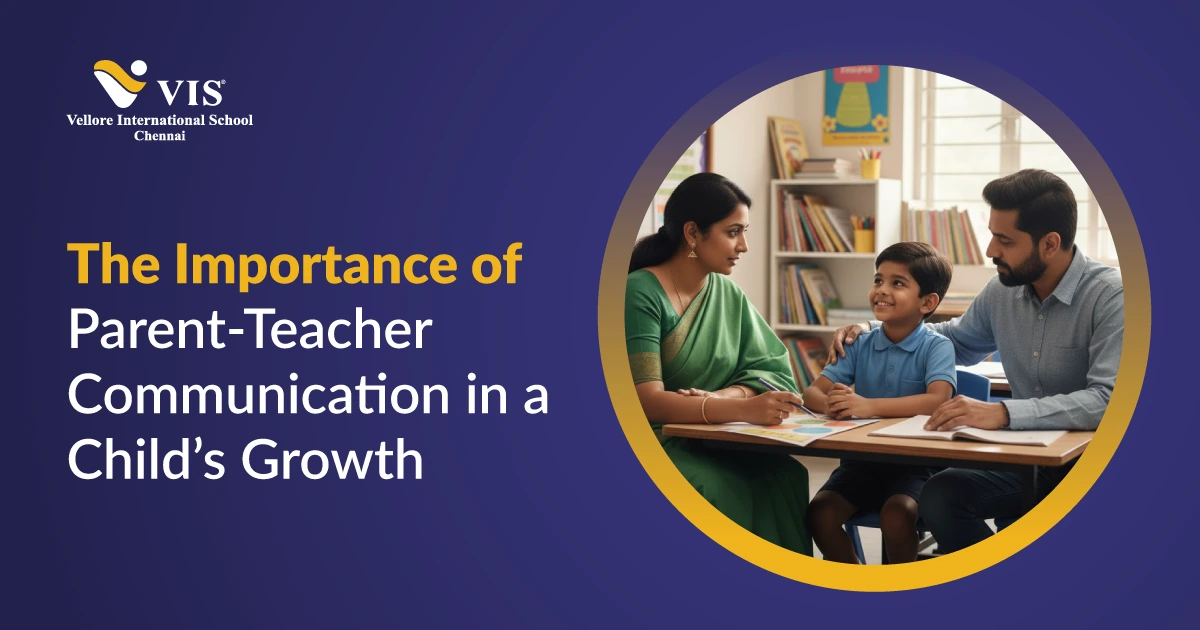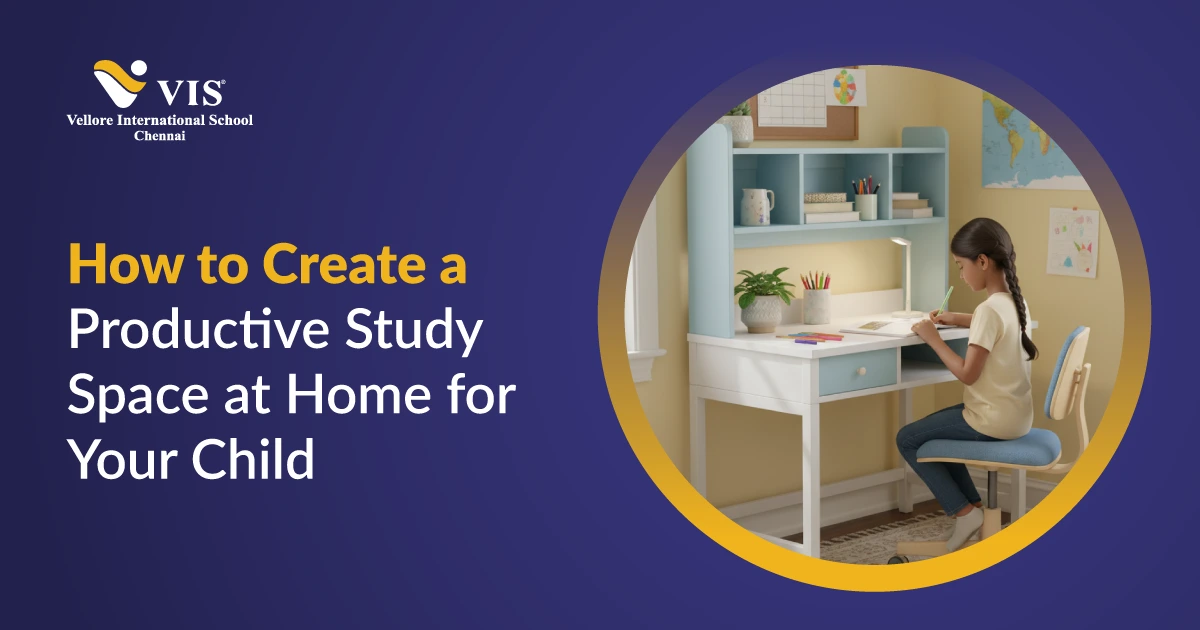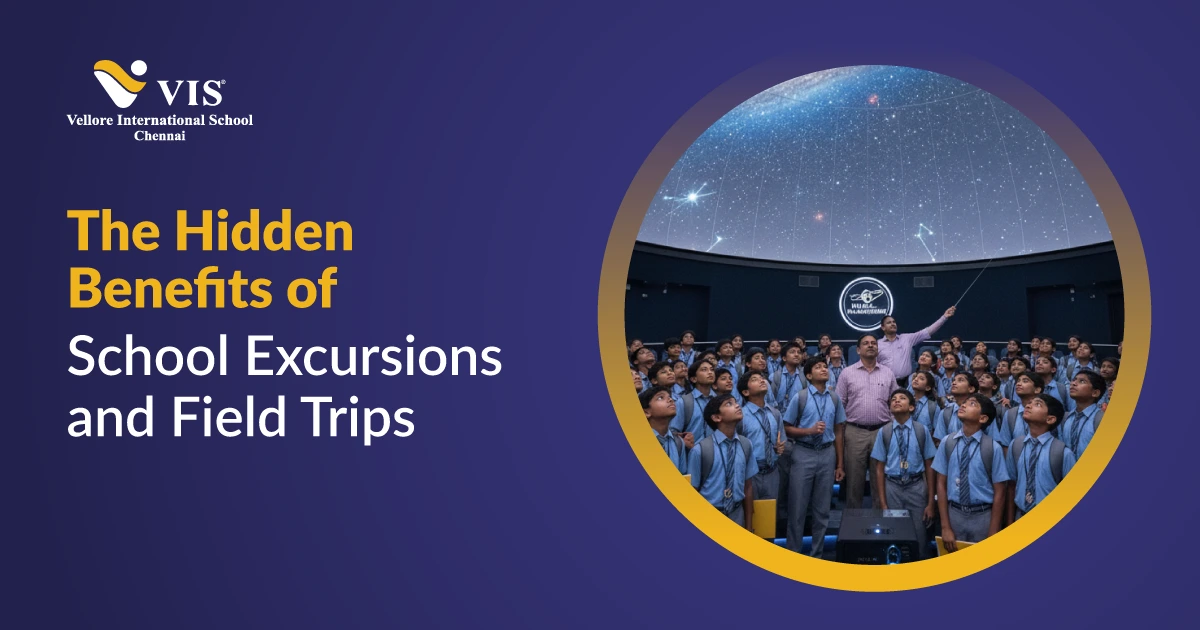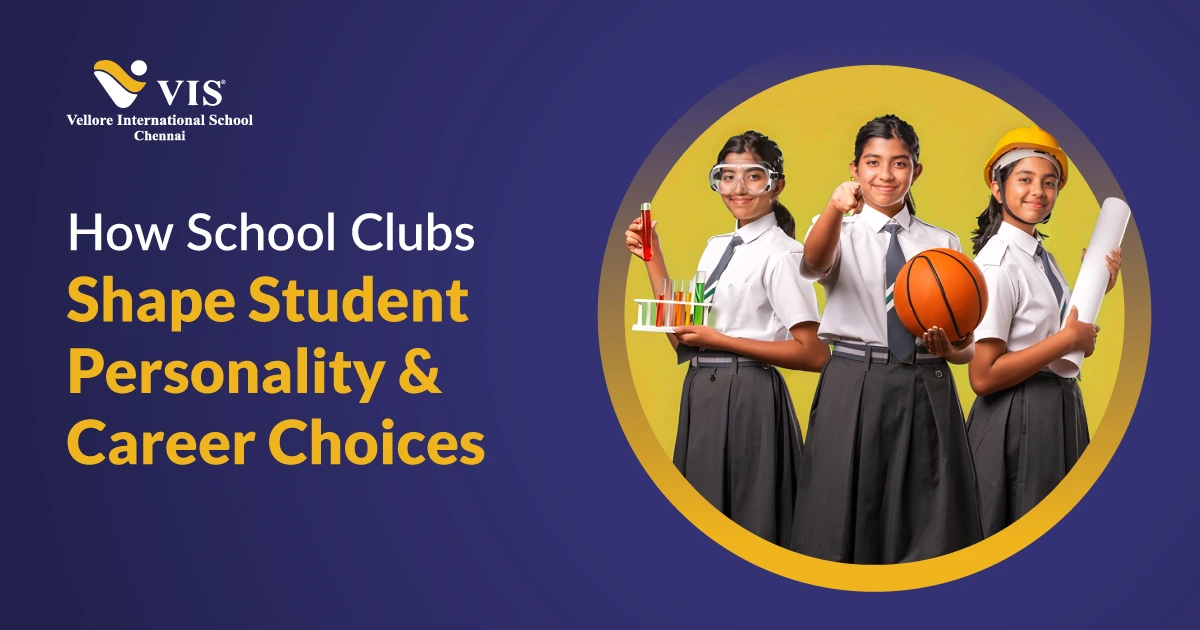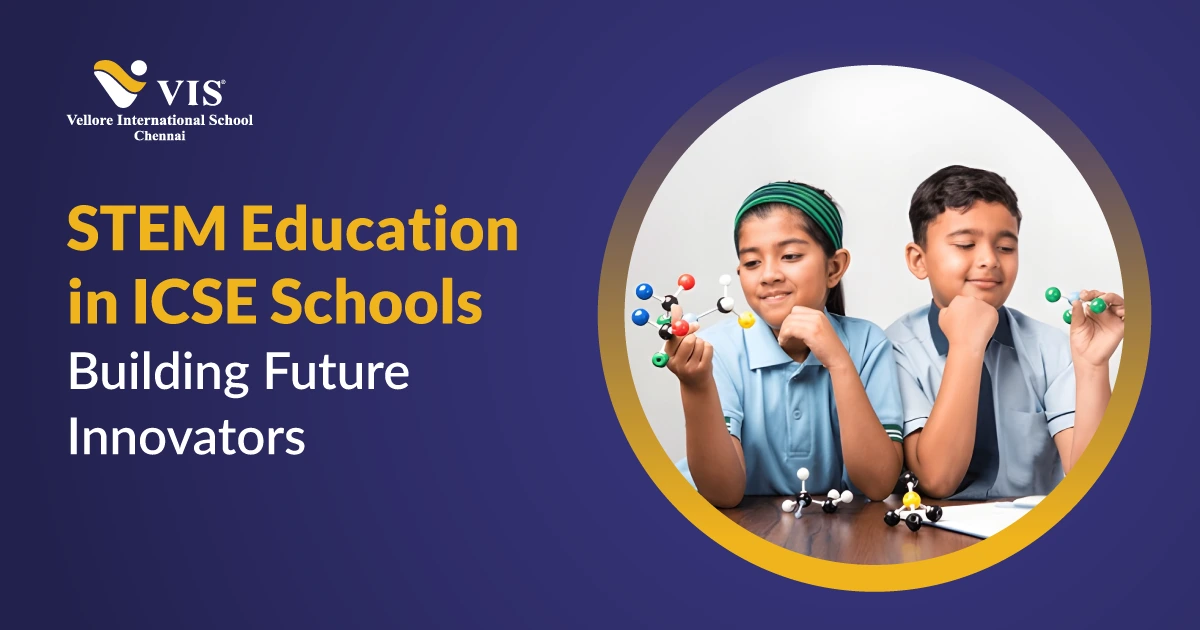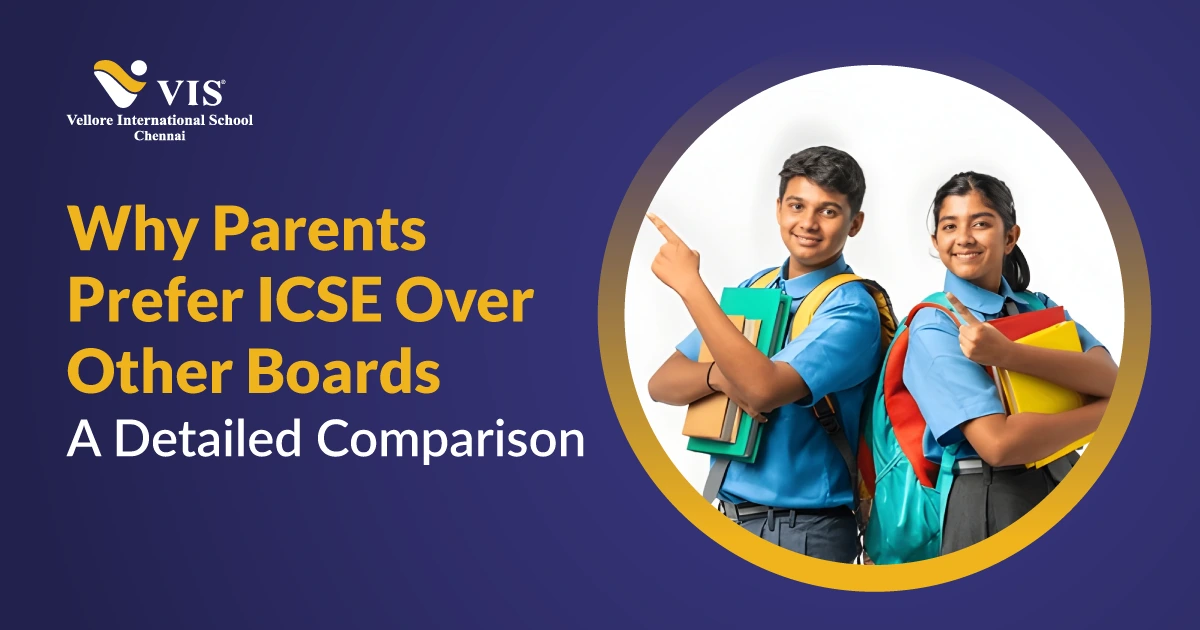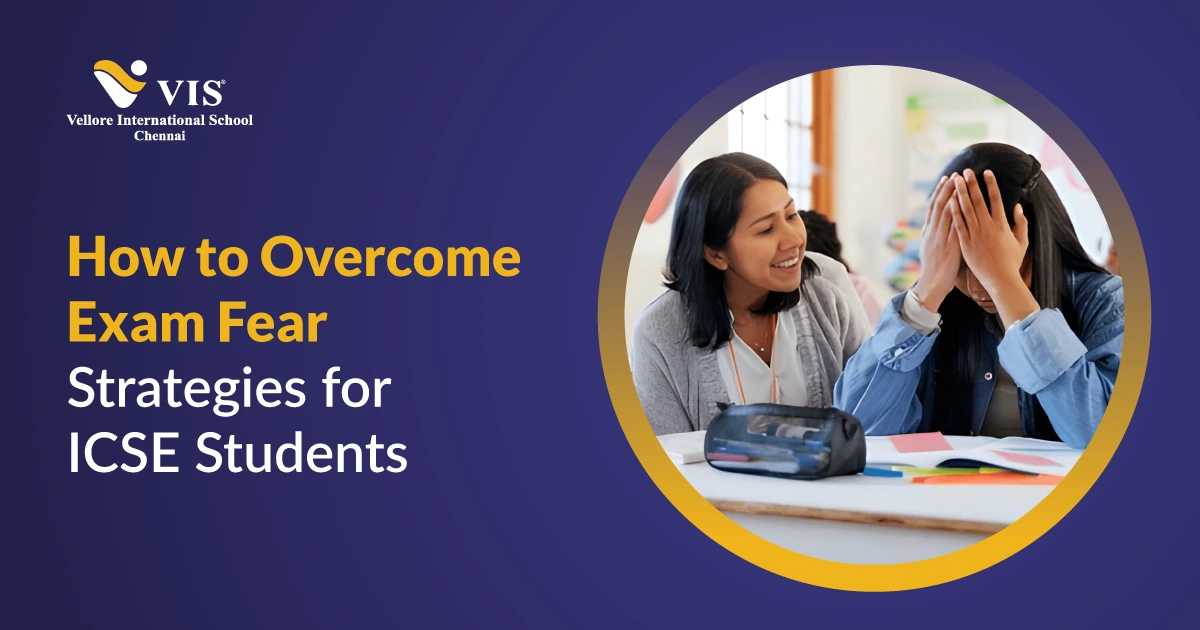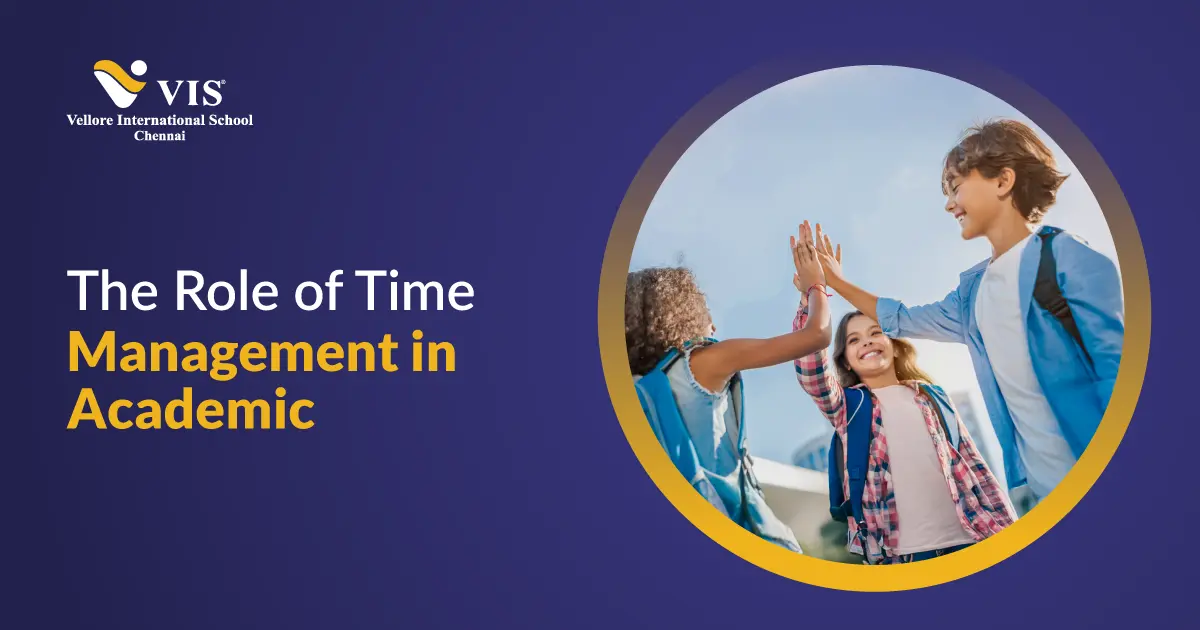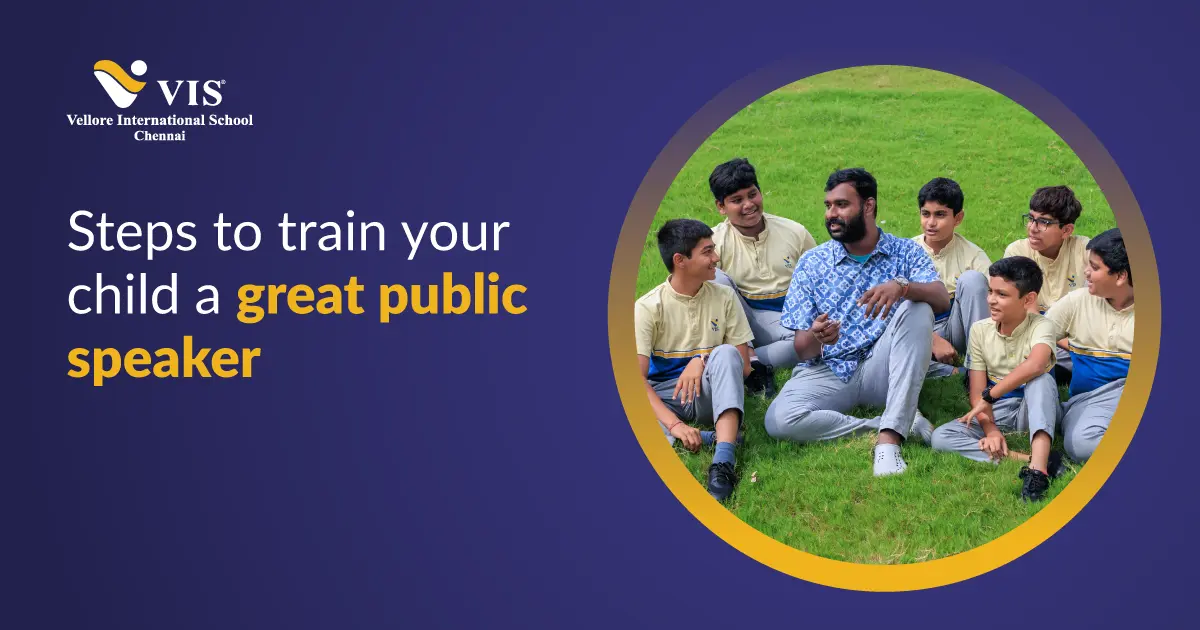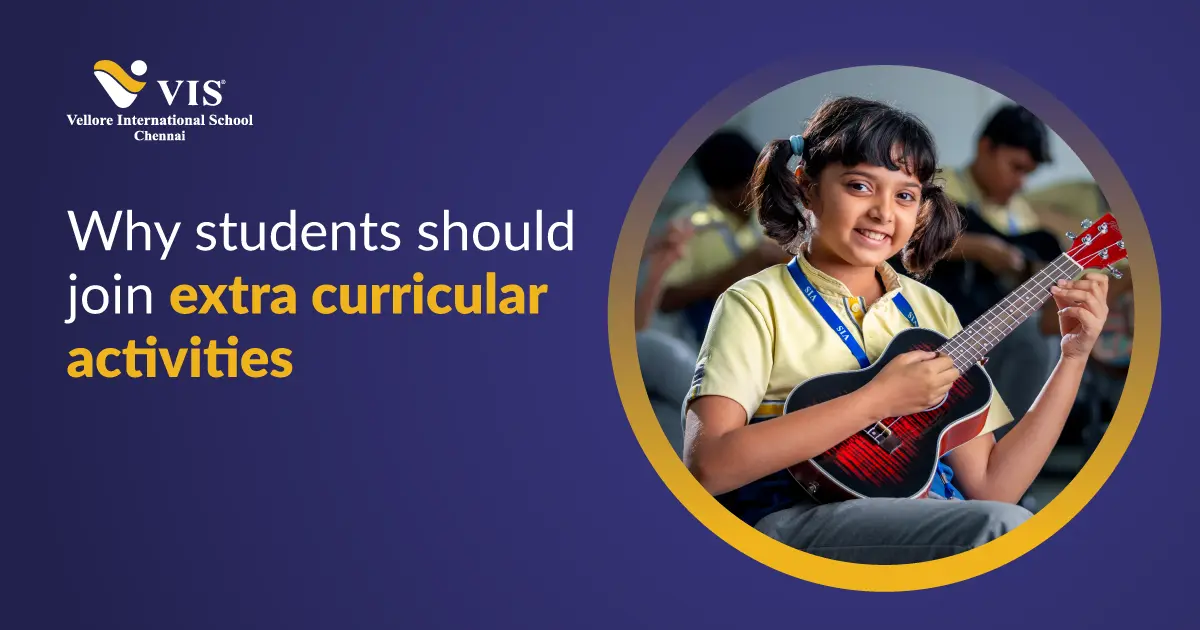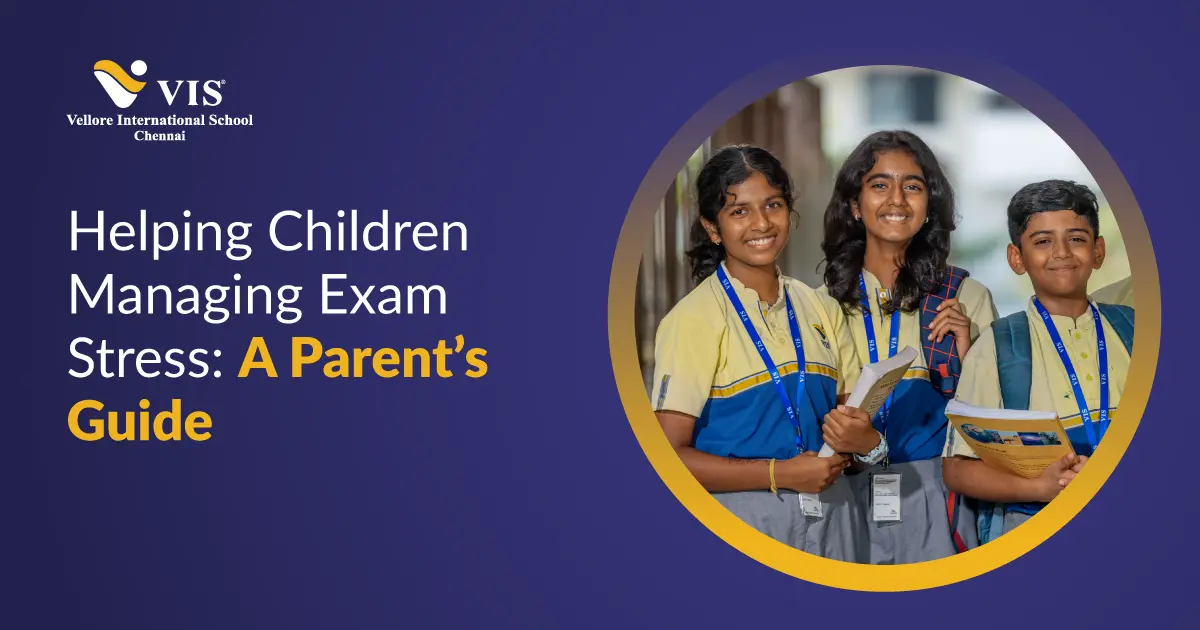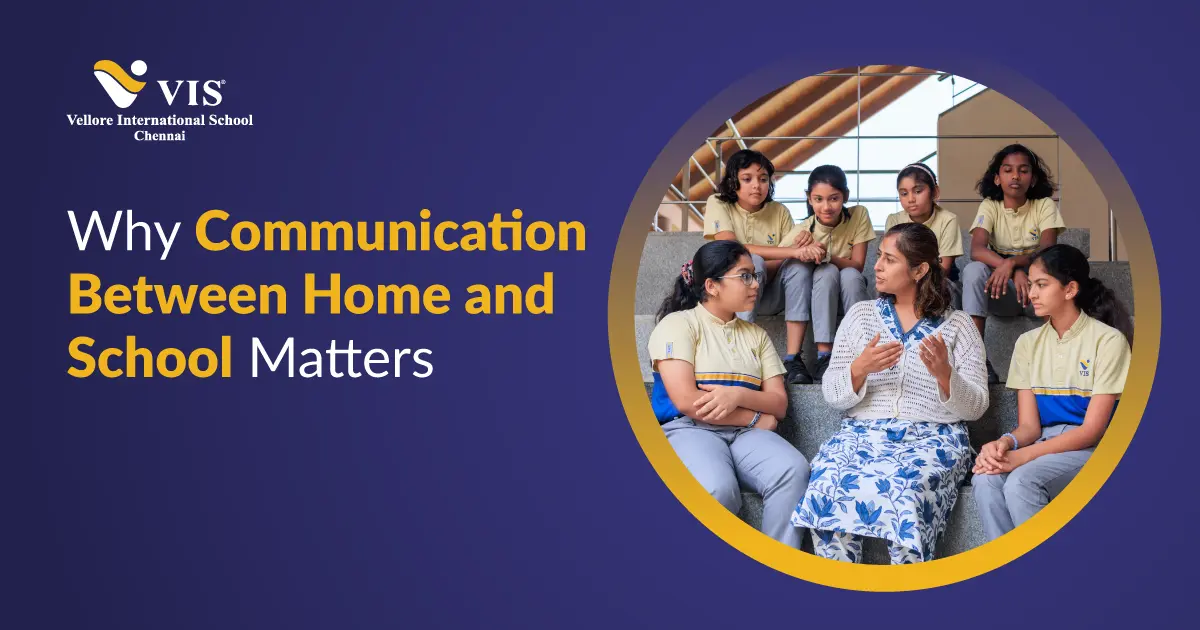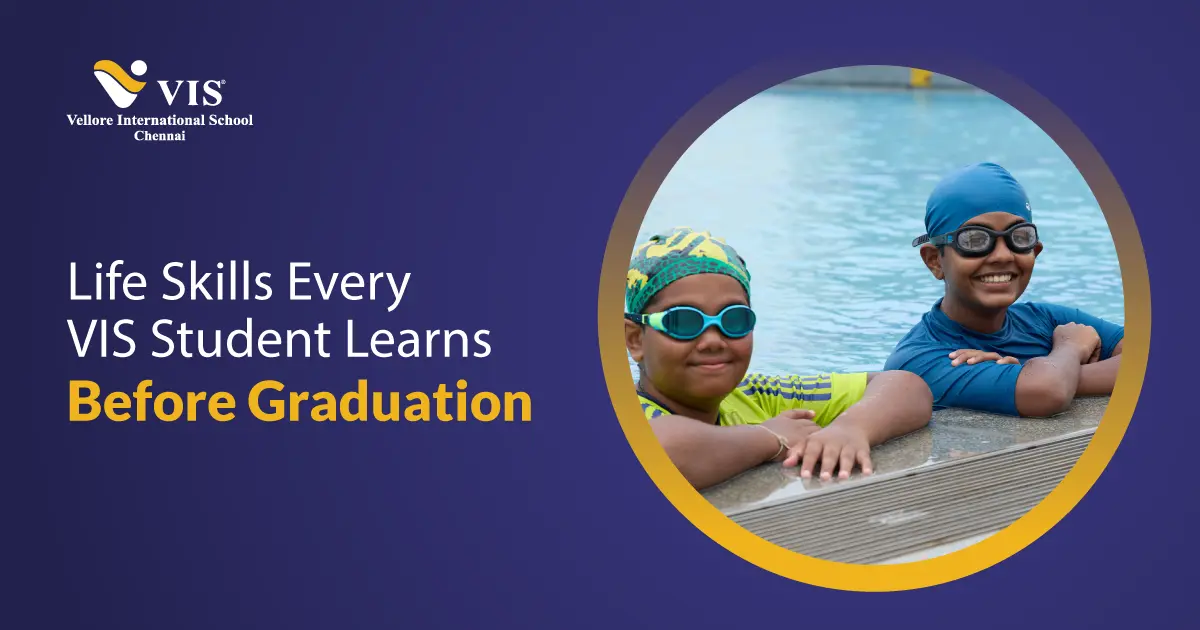Education has always been about much more than textbooks and examinations. The truest form of schooling is about preparing young minds for life beyond the classroom and creating confident, resilient, and compassionate individuals who are equipped with academic knowledge and essential life skills.
At Vellore International School (VIS), the learning journey is designed in such a way that students graduate with excellent academic credentials and with a strong foundation in values, critical thinking, and practical abilities. In this blog, we will explore the life skills at school that every VIS student develops before stepping into higher education, careers, and adulthood.
Why Life Skills Matter More
The modern world is dynamic, swift, and often unpredictable. Academic achievements alone can no longer guarantee success. What truly empowers students is their ability to apply knowledge in real situations, manage challenges, and adapt to changes.
- A student who learns life skills at school knows how to lead with confidence.
- They can collaborate across cultures and solve problems innovatively.
- They become independent thinkers who embrace responsibilities, both personal and professional.
This is why VIS focus on holistic education, balancing academic rigour with opportunities to practise skills that will remain relevant for a lifetime.
Core Life Skills Every VIS Student Learns
Education at Vellore International School (VIS) goes far beyond academics. Students are prepared for exams and also for life. Let’s take a closer look at the core life skills at school that every VIS student develops before they step into adulthood.
1. Effective Communication Skills
Imagine being able to walk into a room full of strangers and still express yourself with confidence. That’s what VIS students are trained for. Communication here about the connection.
- Clarity and Confidence: Through debates, theatre, and public speaking events, students learn to speak their thoughts without hesitation.
- Empathetic Listening: Group projects and peer mentoring sessions teach them that listening is as important as speaking.
- Audience Adaptation: Whether it’s addressing classmates, parents at an event, or judges at a competition, VIS learners learn to tailor their style for different audiences.
Ask yourself: When was the last time someone really listened to you? That’s the difference between just hearing and truly connecting. VIS ensures students understand this subtle but powerful distinction.
2. Critical Thinking and Problem Solving
The world throws problems at us daily, how we respond defines our future. At VIS, critical thinking is encouraged as early as middle school. Instead of memorising, students are asked to:
- Ask “Why” and “How”: Every subject is approached with curiosity. For example, in science, it’s not just about formulas but why those formulas work.
- Explore Multiple Solutions: In math, students might solve a problem in three different ways, proving there’s never just one answer in life.
- Evaluate Consequences: Case studies, role plays, and classroom debates teach them to weigh outcomes before choosing a path.
Imagine this: A student is asked how to reduce plastic waste at school. One suggests banning bottles, another proposes awareness campaigns, and yet another designs recycling bins. That’s critical thinking in action, seeing beyond one path.
3. Emotional Intelligence and Empathy
Do marks define success? At VIS, the answer is clear, character matters just as much as grades. Emotional intelligence (EQ) is woven into the culture of the school.
- Peer Mentoring: Seniors guide juniors, not just academically but emotionally.
- Counselling Support: Students are encouraged to seek guidance without stigma.
- Service Activities: Community service allows them to step into someone else’s shoes, learning compassion firsthand.
Quick reflection: Would you rather work with a brilliant but arrogant teammate or someone average who is kind and cooperative? Most would choose the latter. That’s why VIS students graduate with both intelligence and empathy.
4. Leadership and Teamwork
Leadership is not about giving orders. It’s about inspiring others. At VIS, students experience leadership early on through:
- House Captains & Event Leaders: Taking charge teaches them accountability.
- Community Service Projects: They realise true leadership is service-driven.
- Collaborative Activities: Sports and group assignments foster negotiation and conflict resolution.
Real-life example: During a cultural fest, one student may lead stage management, another handles finance, and others coordinate performers. Together, they make the event a success, learning that teamwork is as critical as leadership.
5. Time Management and Discipline
If there’s one skill that students thank VIS for later in life, it’s time management. With academics, sports, arts, and extracurriculars running side by side, students learn to:
- Prioritise tasks.
- Stick to deadlines.
- Balance work and relaxation.
Think about this: College students often struggle with late assignments. VIS alumni, however, enter higher education with the discipline to balance deadlines, internships, and even part-time jobs. That’s the hidden advantage of mastering this skill early.
6. Digital Literacy and Responsible Technology Use
We live in a digital world. But VIS ensures that technology is used wisely, not blindly.
- Digital Tools: Students become proficient in software, presentations, and research.
- Cyber Safety: Workshops teach them about online privacy, digital footprints, and safe browsing.
- Screen Balance: Activities like sports and arts help them value offline connections just as much.
Interactive moment: If someone asked you today, “Are you controlling technology or is technology controlling you?” how would you answer? VIS ensures students say, “I’m in control.”
7. Financial Literacy and Responsibility
How many adults today regret not learning money management earlier? VIS addresses this gap through:
- Budgeting Exercises: Students manage funds for events or projects.
- Saving Habits: Simple lessons on the importance of saving and delayed gratification.
- Understanding Value: By linking pocket money, allowances, and responsibility.
Imagine a 17-year-old who already knows how to budget a monthly allowance, plan savings for a gadget, and avoid impulsive spending. That’s the kind of confidence VIS instils before graduation.
8. Global Awareness and Cultural Sensitivity
The world is shrinking. VIS prepares students to thrive in multicultural settings by:
- Exchange Programs: Students interact with peers from other countries.
- Celebrating Global Festivals: Events highlight traditions from around the world.
- Discussions on Global Issues: From climate change to technology ethics, students engage in meaningful debates.
Here’s a thought: In tomorrow’s workplace, your teammate may sit in New York, your manager in Dubai, and your client in Tokyo. VIS students are already prepared for this reality through their multicultural exposure.
9. Health, Wellness, and Mindfulness
A sharp mind resides in a healthy body. VIS ensures students grow into balanced individuals by focusing on:
- Physical Education: Sports and fitness sessions keep them active.
- Mindfulness & Yoga: Techniques that reduce stress during exams.
- Nutrition Awareness: Healthy eating habits are encouraged through school initiatives.
Reflection: How often do adults burn out because they don’t know when to pause? VIS teaches students early that taking care of mental and physical health is crucial.
10. Creativity and Innovation
Lastly, VIS never lets creativity take a back seat. Students are encouraged to explore every talent, whether academic or artistic.
- Arts & Music: From painting to choir, creativity finds many outlets.
- Drama & Storytelling: Builds imagination and stage confidence.
- Entrepreneurial Projects: Students turn ideas into small ventures, blending creativity with real world problem solving.
Picture a student presenting a science project that’s innovative and eco-friendly. That’s how VIS sparks both creativity and responsibility.
How VIS Integrates Life Skills Into Daily Learning
1) Experiential Learning Projects
- Real world problem solving activities.
- Entrepreneurship fairs.
- Science exhibitions that blend theory with practice.
2) Community Service Programs
- Social awareness campaigns.
- Volunteering with NGOs.
- Sustainability projects.
3) Skill Based Assessments
- Evaluations beyond exams.
- Group projects, presentations, and reflective essays.
4) Counselling and Guidance
- Career counselling for informed decisions.
- Emotional support to build resilience.
Long-Term Impact of Life Skills
The true value of education lies not only in the grades a student earns but in the lessons that last a lifetime. At VIS, the life skills at school that students cultivate continue to guide them well beyond graduation.
A) Higher Education Success:
Universities around the world seek individuals who bring more than academic excellence. VIS graduates stand out because they possess leadership qualities, teamwork abilities, and resilience. These skills allow them to excel in group discussions, adapt to international classrooms, and pursue research or creative projects with confidence.
B) Career Readiness:
Employers look for candidates who can think critically, communicate effectively, and adapt quickly to change. Students who graduate from VIS with life skills are prepared for the workforce and the future, able to solve problems and make valuable contributions.
C) Personal Growth:
Life beyond school brings challenges such as financial independence, maintaining relationships, and handling stress. With the foundation built at VIS, graduates approach these transitions with maturity, balance, and self-awareness.
D) Global Citizenship:
Empathy and cultural sensitivity are vital. VIS students thrive internationally, contributing as responsible, compassionate global citizens who respect diversity and drive positive change.
Final Thoughts
The essence of education lies in shaping diverse individuals. At Vellore International School, students gain a lifelong toolkit of abilities that empower them in every sphere of life. The emphasis on life skills at school ensures that when students walk out of VIS, they are ready to embrace higher education, careers, and personal growth with confidence and wisdom.
Graduation is not the end. It’s the beginning of a meaningful journey where VIS students shine as leaders, innovators, and responsible global citizens.
FAQs:
1. Why are life skills at school important for students?
Life skills at school help children go beyond academics and prepare them for real-world challenges. They learn communication, problem-solving, emotional intelligence, and leadership, which are crucial for success in higher education, careers, and personal life.
2. How does Vellore International School teach life skills to students?
At Vellore International School, life skills are integrated into everyday learning. Through debates, sports, cultural events, community service, and technology workshops, students practice teamwork, discipline, digital literacy, and empathy while excelling academically.
3. Which life skills are most useful for students after graduation?
The most valuable life skills at school include time management, financial literacy, critical thinking, and global awareness. These skills prepare students for independent living, adapting to multicultural environments, and making responsible career and personal decisions.
4. Can life skills at school improve academic performance?
Yes. When students develop life skills such as time management, stress control, and emotional intelligence, they perform better academically. These skills help them focus, manage exam pressure, and stay motivated in their learning journey.
5. How does VIS ensure students become confident leaders?
VIS provides leadership opportunities through house systems, cultural programs, sports teams, and service projects. By encouraging responsibility, teamwork, and vision, the school nurtures confident leaders who are ready to take on challenges in college and professional life.

